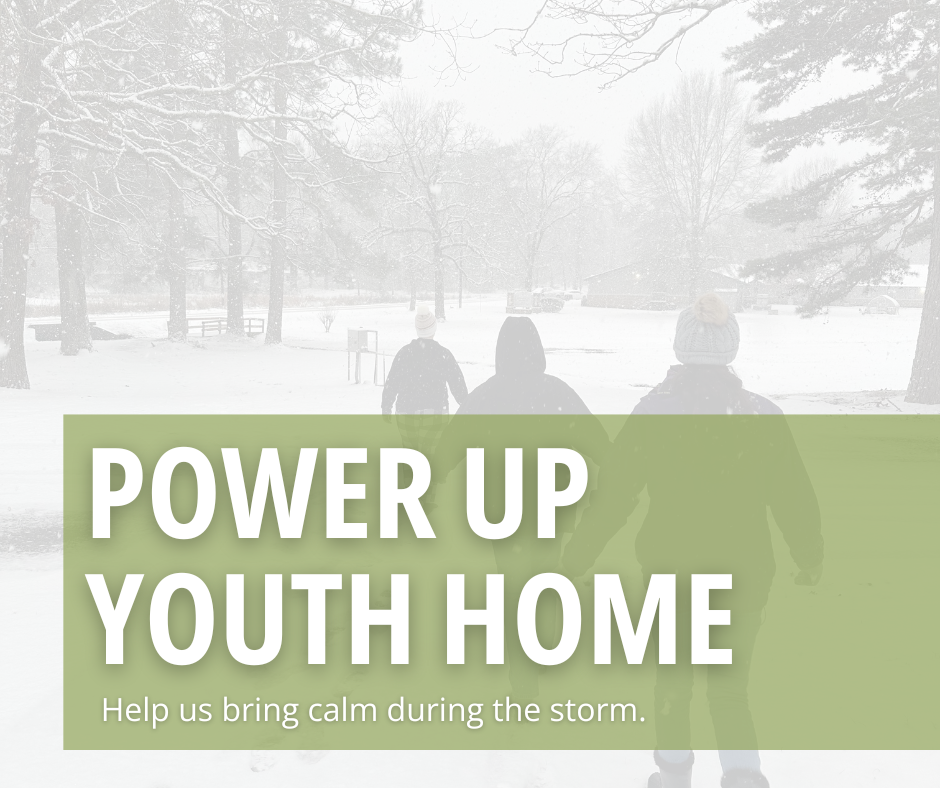Residential treatment for a child with PTSD and trauma can offer a structured and intensive therapeutic environment designed to address the complex and specific needs associated with these conditions.
Here are some clinical considerations that may suggest the appropriateness of residential treatment:
- Severity of Symptoms:
If the child's symptoms of PTSD and trauma are severe, persistent, and significantly impair their ability to function in daily life, despite outpatient interventions, residential treatment may be considered.
- Safety Concerns: If there are serious safety concerns, such as self-harm or suicidal ideation, and the child is unable to maintain safety in an outpatient setting, residential treatment may be necessary to provide a higher level of supervision and support.
- Ineffectiveness of Outpatient Treatment: If outpatient therapeutic interventions have not led to substantial improvement, and the child's symptoms persist or worsen, residential treatment may be considered to provide a more intensive and focused therapeutic environment.
- Co-occurring Disorders:
If the child has co-occurring mental health disorders, substance abuse issues, or other complex clinical presentations in addition to PTSD, residential treatment may be necessary to address the multifaceted nature of their challenges.
- Disruption in Functioning:
If the child's trauma-related symptoms significantly disrupt their functioning across various domains, including school, relationships, and daily activities, residential treatment may be explored as a way to address and stabilize these disruptions.
- Lack of External Support:
If the child lacks a stable and supportive external environment, such as a safe home or a consistent support system, residential treatment can offer a more structured and secure setting.
- Need for Intensive Therapeutic Modalities:
If the child requires intensive and specialized therapeutic modalities, such as trauma-focused therapies (e.g., EMDR, TF-CBT) delivered in a more immersive environment, residential treatment may be considered.
It's crucial to emphasize that the decision to pursue residential treatment should be made collaboratively between mental health professionals, the child's primary care provider, and the family. A thorough assessment, including consideration of the child's individual circumstances, is essential to determine the most appropriate level of care. If you are concerned about a child with PTSD and trauma, seeking professional guidance and assessment is strongly recommended.
Residential Treatment
Intensive Residential Treatment for anxiety and depression offers your child the following services in a more restrictive and supportive environment:
- Individual Therapy: One-on-one counseling sessions to address specific issues and develop coping strategies tailored to the individual.
- Group Therapy: Structured group sessions that provide a supportive environment for individuals to share experiences, learn from others, and develop social skills.
- Medication Management: For those who require medication, psychiatrists may be involved in evaluating, prescribing, and monitoring medications to address symptoms.
- Evidence-Based Treatments: Informing individuals and their families about mental health conditions, coping mechanisms, and strategies for managing symptoms.
- Structured Daily Activities: Establishing a routine that includes therapeutic activities, educational components, and recreational time to promote overall well-being.
- Family Involvement: Inclusion of family therapy or family education to address the impact of mental health issues on the family system and facilitate a supportive home environment.
- On-Campus Education: Continuing on their education track while during treatment with the help of Dually Certified teachers in primary subjects as well as Special Education, Qualified Behavioral Health Provider assistance, as well as access to therapy, nursing, and a de-escalation zone.
- Aftercare Planning: Preparation for transitioning back to a less intensive level of care, often involving outpatient therapy and ongoing support.
Signs Your Child May Have PTSD
The following criteria apply to adults, adolescents, and children older than 6 years.
- Exposure to actual or threatened death, serious injury, or sexual violence in one (or more) of the following ways:
- Directly experiencing the traumatic event(s).
- Witnessing, in person, the event(s) as it occurred to others.
- Learning that the traumatic event(s) occurred to a close family member or close friend. In cases of actual or threatened death of a family member or friend, the event(s) must have been violent or accidental.
- Experiencing repeated or extreme exposure to aversive details of the traumatic event(s) (e.g., first responders collecting human remains; police officers repeatedly exposed to details of child abuse). Note: Criterion A4 does not apply to exposure through electronic media, television, movies, or pictures, unless this exposure is work related.
- Presence of one (or more) of the following intrusion symptoms associated with the traumatic event(s), beginning after the traumatic event(s) occurred:
- Recurrent, involuntary, and intrusive distressing memories of the traumatic event(s). Note: In children older than 6 years, repetitive play may occur in which themes or aspects of the traumatic event(s) are expressed.
- Recurrent distressing dreams in which the content and/or affect of the dream are related to the traumatic event(s). Note: In children, there may be frightening dreams without recognizable content.
- Dissociative reactions (e.g., flashbacks) in which the individual feels or acts as if the traumatic event(s) were recurring. (Such reactions may occur on a continuum, with the most extreme expression being a complete loss of awareness of present surroundings.) Note: In children, trauma-specific reenactment may occur in play.
- Intense or prolonged psychological distress at exposure to internal or external cues that symbolize or resemble an aspect of the traumatic event(s).
- Marked physiological reactions to internal or external cues that symbolize or resemble an aspect of the traumatic event(s).
- Persistent avoidance of stimuli associated with the traumatic event(s), beginning after the traumatic event(s) occurred, as evidenced by one or both of the following:
- Avoidance of or efforts to avoid distressing memories, thoughts, or feelings about or closely associated with the traumatic event(s).
- Avoidance of or efforts to avoid external reminders (people, places, conversations, activities, objects, situations) that arouse distressing memories, thoughts, or feelings about or closely associated with the traumatic event(s).
- Negative alterations in cognitions and mood associated with the traumatic event(s), beginning or worsening after the traumatic event(s) occurred, as evidenced by two (or more) of the following:
- Inability to remember an important aspect of the traumatic event(s) (typically due to dissociative amnesia, and not to other factors such as head injury, alcohol, or drugs).
- Persistent and exaggerated negative beliefs or expectations about oneself, others, or the world (e.g., “I am bad,” “No one can be trusted,” “The world is completely dangerous,” “My whole nervous system is permanently ruined”).
- Persistent, distorted cognitions about the cause or consequences of the traumatic event(s) that lead the individual to blame himself/herself or others.
- Persistent negative emotional state (e.g., fear, horror, anger, guilt, or shame).
- Markedly diminished interest or participation in significant activities.
- Feelings of detachment or estrangement from others.
- Persistent inability to experience positive emotions (e.g., inability to experience happiness, satisfaction, or loving feelings).
- Marked alterations in arousal and reactivity associated with the traumatic event(s), beginning or worsening after the traumatic event(s) occurred, as evidenced by two (or more) of the following:
- Irritable behavior and angry outbursts (with little or no provocation), typically expressed as verbal or physical aggression toward people or objects.
- Reckless or self-destructive behavior.
- Hypervigilance.
- Exaggerated startle response.
- Problems with concentration.
- Sleep disturbance (e.g., difficulty falling or staying asleep or restless sleep).
- Duration of the disturbance (Criteria B, C, D and E) is more than 1 month.
- The disturbance causes clinically significant distress or impairment in social, occupational, or other important areas of functioning.
- The disturbance is not attributable to the physiological effects of a substance (e.g., medication, alcohol) or another medical condition.
Therapy is always an option to consider for a child who is struggling with symptoms related to PTSD.
Therapy offers a safe space for your child to process their experiences, learn healthy coping skills, and gradually work through the effects of trauma. A therapist specializing in PTSD can provide evidence-based strategies to address your child's unique needs, guiding them toward recovery and a healthier, more resilient future. Seeking help for your child is a courageous and proactive decision that can make a world of difference in their well-being.
---
Residential Treatment
Is Your Child Qualified for Youth Home's Residential Treatment Program?
- Does your child have a primary mental health diagnosis such as Reactive Attachment Disorder, Oppositional Defiant Disorder, ADHD/ADD, Depression, Anxiety, Trauma, or PTSD?
- Does your child have recent attempts at Outpatient Therapy, Day Treatment, School-Based Services or multiple stays in Acute Care?
- Does your child have a Full-Scale IQ of 70 or Above?
- Is your child enrolled in an Educational Program like Public School, Day Treatment or a Vocational Program?
- Youth Home does not accept youth who have committed acts of sexual abuse or assault.
- Also note that Youth Home requires regular family sessions as a part of the treatment program. Caregivers will be expected to maintain a presence in family therapy for a child to continue in our care.
If you answered yes to all of the above questions and your child does not have a history of aggression or sexual assault towards another person, please continue below to our TRICARE® East & West Applications.
If you are unsure about whether or not your child would be a good fit, give us a call at our toll-free number: 1-800-728-6452 or our local caller's number: 501-821-5500. We would love to help you sort it out!
---
Youth Home Residential Treatment for Adolescents Ages 12-17
Youth Home Inc. in Little Rock has been a beacon of hope for troubled youth for over five decades. Our dedication to providing specialized care and support for at-risk adolescents is reflected in the very heart of our organization – our campus.
Our campus at Youth Home Inc. is more than just a physical space; it's a place where troubled youth find hope, healing, and a chance for a better future. We are proud of the warm and inviting environment we've created to support these young individuals on their journey to recovery. It is a reflection of our commitment to making a positive impact on their lives, and we look forward to continuing our mission of nurturing hope and fostering growth in the youth we serve.
Youth Home accepts clients from Medicaid, Medicaid PASSE, as well as TRICARE® East (Humana) and TRICARE® West (Health Net).
The TRICARE West Region includes the states of Alaska, Arizona, California, Colorado, Hawaii, Idaho, Iowa (except the Rock Island Arsenal area), Kansas, Minnesota, Missouri (except the St. Louis area), Montana, Nebraska, Nevada, New Mexico, North Dakota, Oregon, South Dakota, Texas (Amarillo, Lubbock and El Paso areas only), Utah, Washington, and Wyoming.
The TRICARE East Region includes Alabama, Arkansas, Connecticut, Delaware, the District of Columbia, Florida, Georgia, Illinois, Indiana, Iowa (Rock Island Arsenal area only), Kentucky, Louisiana, Maine, Maryland, Massachusetts, Michigan, Mississippi, Missouri (St. Louis area only), New Hampshire, New Jersey, New York, North Carolina, Ohio, Oklahoma, Pennsylvania, Rhode Island, South Carolina, Tennessee, Texas (excluding the El Paso area), Vermont, Virginia, West Virginia and Wisconsin.
Get to Know youth home!
Our mission is to equip and empower youth, adults, and families to become healthier and contributing members of the community by providing compassionate psychiatric and behavioral health care.



